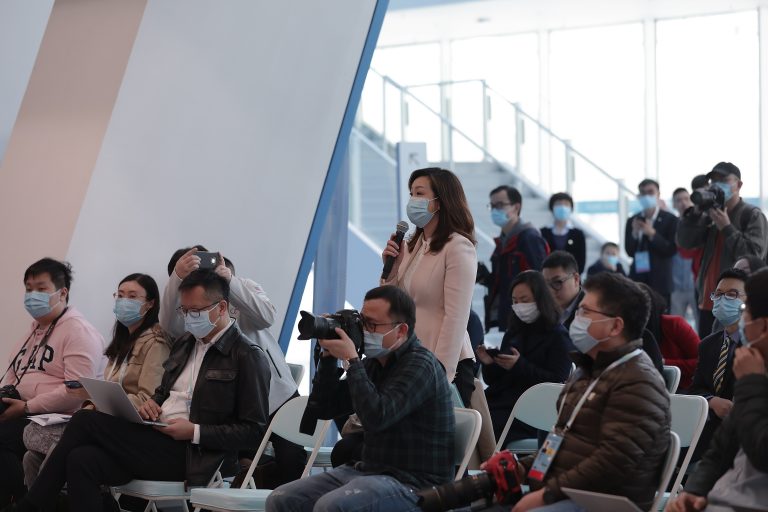The Committee to Protect Journalists (CPJ), a nonprofit that promotes press freedoms across the world, recently published its annual prison census report for 2021. China was once again found to be the world’s worst jailer of journalists for the third consecutive time, with 50 news reporters being put behind bars. The CPJ report comes as China is scheduled to host the 2022 Winter Olympics in February.
The report notes that though China’s “relentless incarceration” is nothing new, this is the first time that journalists imprisoned in Hong Kong have made their way into the census; a consequence of Beijing imposing the National Security Law (NSL) in June of last year.
The law allows the administration to arrest anyone who is suspected of working for foreign interests and who engages in what the state deems subversive activities. There have been reports that the law is being utilized to target pro-democracy and free speech activists as well as reporters.
From Hong Kong, eight media figures were imprisoned, with some of them facing lifelong sentences. A key figure among the incarcerated is Jimmy Lai, the founder of the now shuttered media outlet Apple Daily. The outlet was forced to shut down operations last year after authorities used the NSL to freeze the company’s assets.
As far as mainland China is concerned, some individuals faced “vague Orwellian charges.” In May 2020, freelance video journalist Zhang Zhan was arrested for covering China’s unimpressive response to the COVID-19 pandemic. She was eventually sentenced to four years in prison for “picking quarrels and stirring up trouble,” which the CPJ says is a charge often used to target “peaceful critics” of the communist party. Some were accused of being “two-faced,” a term often used against Uyghur reporters.
Success
You are now signed up for our newsletter
Success
Check your email to complete sign up
“China also targeted non-journalists for tenuous associations with the media, arresting 11 people for allegedly sending material to The Epoch Times, a media company affiliated with the spiritual group Falun Gong. The 11 are not listed in the CPJ census because The Epoch Times said they were not reporters, but their detention is an ominous indicator of China’s efforts to stifle media discourse,” the report states.
The CPJ census only takes into account journalists who are held in government custody. It does not include journalists who are held captive or have disappeared due to the activities of non-state actors.
In total, the number of journalists who were jailed for their work in 2021 hit a new record with 293 individuals behind bars, up from 280 in 2020. 24 journalists were found to have been killed due to their coverage while 18 died under unclear circumstances. After China, Myanmar came in second for being the worst jailer following a military coup in the country on Feb. 1. Other countries in the top five include Egypt, Belarus, and Vietnam.
In November, the Hong Kong Foreign Correspondents’ Club (FCC) published the results of a survey showing that almost half its members were thinking of leaving the city due to the crackdown on press freedom. Of the 99 polled journalists, 83 said that the working environment of Hong Kong had “changed for the worse” after the NSL was imposed last year.
“These results clearly show that assurances that Hong Kong still enjoys press freedom, guaranteed under the Basic Law, are not enough… More steps need to be taken to restore confidence among journalists and to make sure Hong Kong maintains its decades-long reputation as a welcoming place for the international media,” FCC President Keith Richburg stated.
In its response, China lashed out at the survey, accusing FCC of being “black hands” that intervene in city affairs and asked the organization to stop making “noise.”














